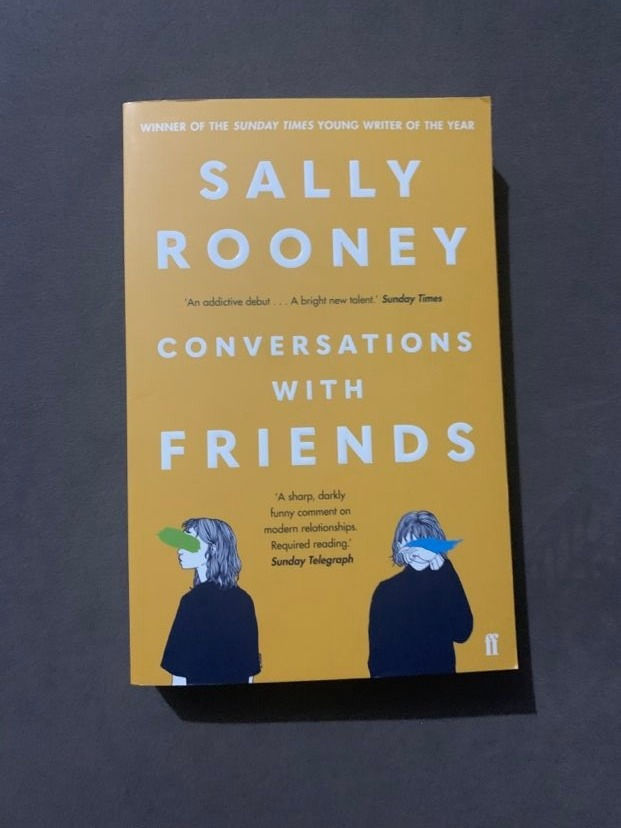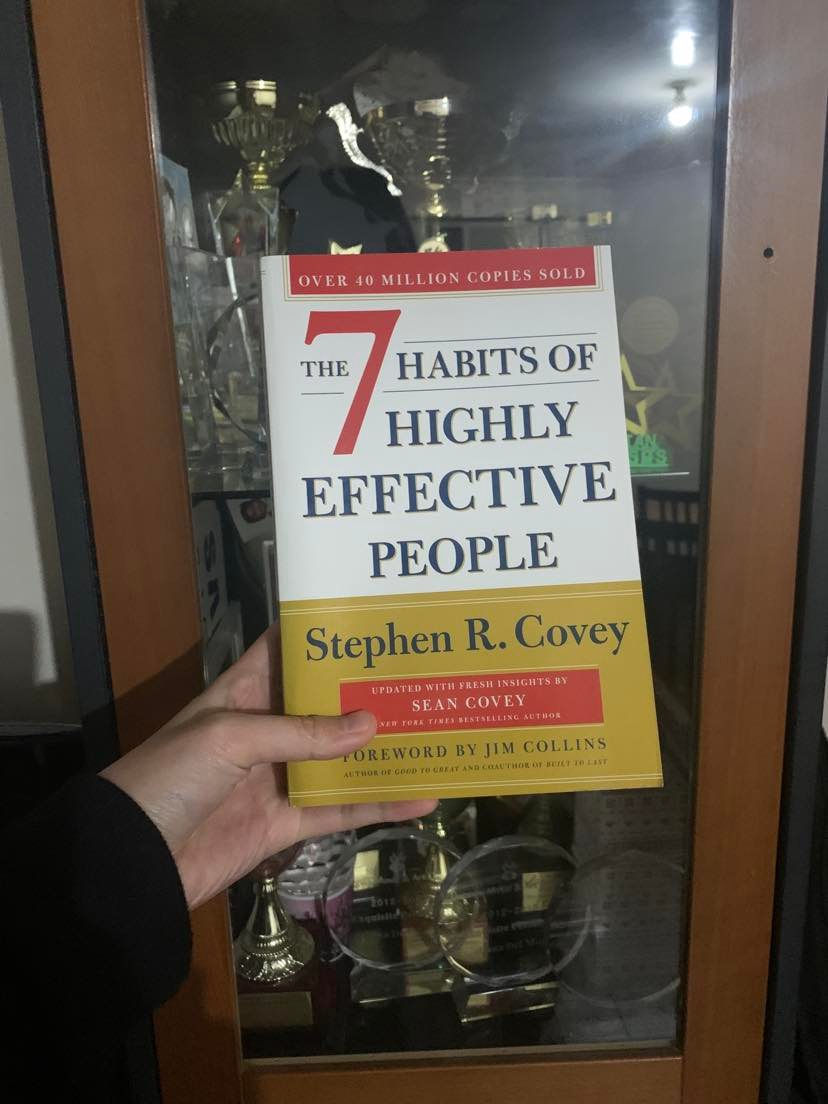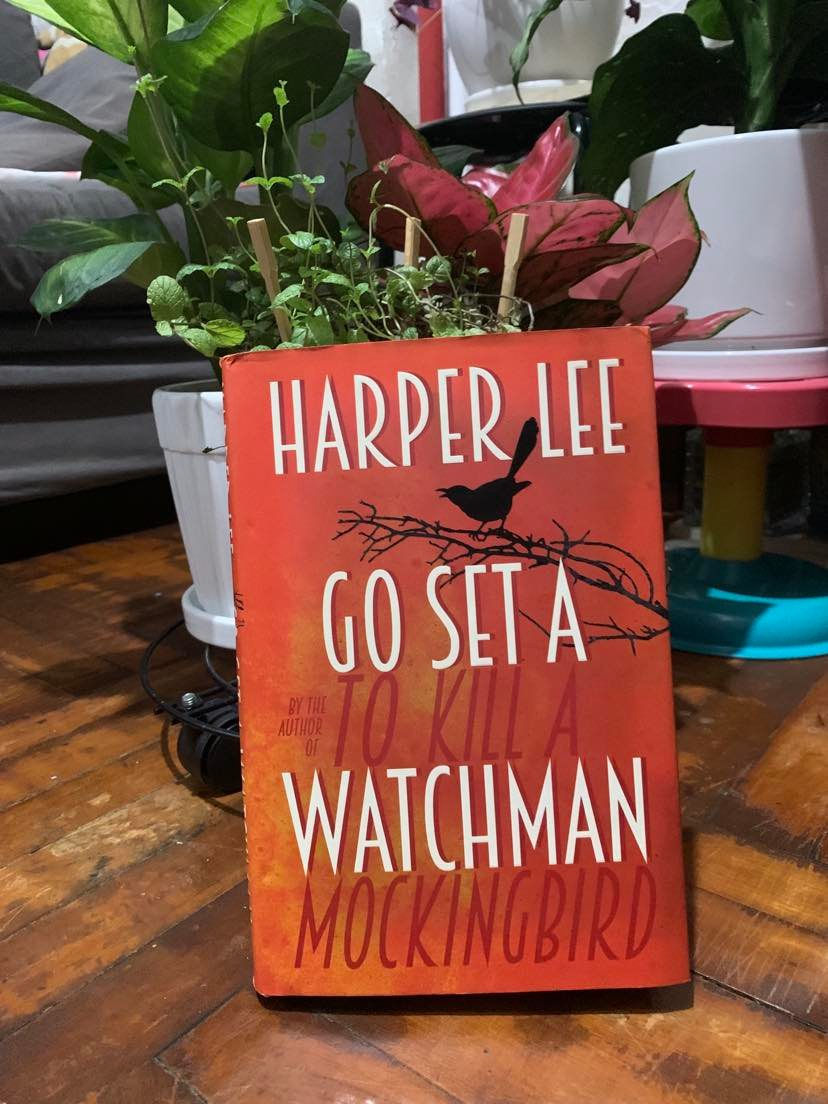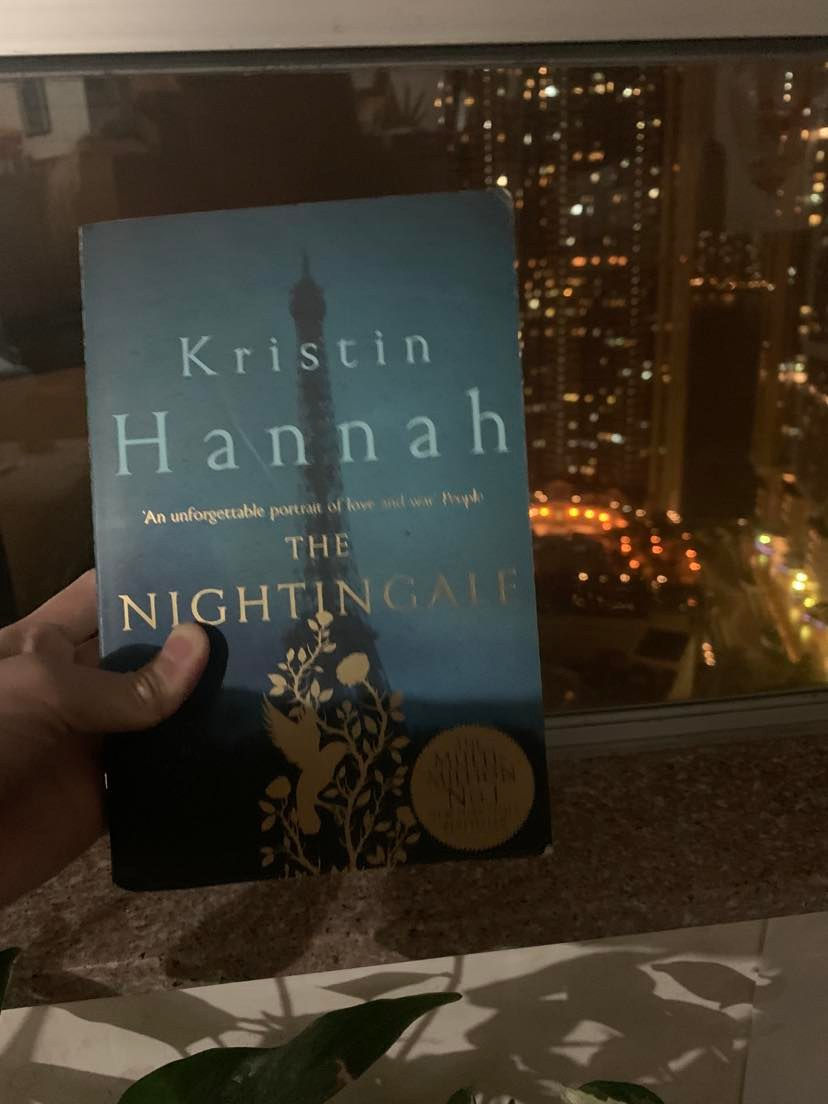Reading 9 Books in 24 Hours (Who Needs Sleep?)
- earth_to_gillian

- Feb 9, 2022
- 9 min read

And yet, I did it again! Another 24-reading challenge by yours truly. This year, I managed to read 9 books (1 more than last time)! But I was also sleepier for some reason when doing this challenge. Guys, remember to actually get proper sleep if you're going to pull an all-day/nighter, and ESPECIALLY if you're reading.
But anyways, this was a joy to do, and I really enjoyed the lineup this year! Without further ado, here's a more in-depth review on the books I read:
1. Crying in H Mart by Michelle Zauner

This was the first book that started off the 24-hour challenge (and also ranked the first), and what a way to start the morning (a teary one at that). Michelle Zauner is the lead of Japanese Breakfast, an indie pop band, and personally, I love their music. It's dreamy, poetic and brings you to another world. Just like this book. Zauner is able to translate her lyricism even into her storytelling and that's what made this memoir on her mother so powerful.
Not only does she explore the love she has of her mother, but she also talks about the struggles of finding her cultural belonging as a Korean-American. It's something that resonates with many third-culture kids, including me. This includes her lifestyle in America, her social circle in school, and the cultural dynamics in her family. The barriers she experiences and how she breaks it down is relatable, and that's what makes you empathize much more with the grief and sorrow she feels in the passing of her mother.
I especially loved the use of her metaphors when it comes to the cultural barrier. Although she couldn't speak Korean with her mother and relatives, they are able to speak to each other through food. It shows that love can be expressed in different ways, and cooking can be a powerful love language.
2. How Do You Live? by Genzaburo Yoshino

Wow. I have no words for this book, considering this is for CHILDREN. Yet this book encapsulates so many complex themes that can translate well for kids to understand. They talk about tyranny, drawing parallels between authoritarian rule and bullying by senior students towards the protagonist (an elementary school kid) and his friends. They discuss about poverty and classism through the socio-economic differences between the main character, who is relatively rich, and his poor counterpart. They also talk about labour economics, law of attraction, etc. Wow wow wow! It's done in a way that does not sound too dense and is explained without using such a verbose way. It's such a page-turner and breath of fresh air.
The author, Genzaburo Yoshino, was also a journalist, and so you can definitely see that journalist style of writing in this book, where he seeks for truth, objectivity and an outsider's perspective. I am still in awe by Japanese literature and their way of expressing these themes and making it so comprehensible for all generations. It's something that Western literature does not quite capture.
3. Brida by Paulo Coelho

People asked me how was I able to stay awake for 24 hours. Truth is I did not, because I literally fell asleep reading this (and it was still 3pm). Behold, Brida, written by Coelho the Clown (sorry, Coelho, I bet you're a nice guy, but this was just a circus). What on earth was this? Are you kidding me? At this point, bestseller is equivalent to an award for participation. I don't mean to be a harsh critic, but Brida is the flattest story I have seen in a while. The first book I read from Coelho was his best-selling book, The Alchemist. It was a good book, but I was quite skeptical about the sexist undertones it had. Though because I did enjoy the plot, I gave him the benefit of the doubt that it was just the setting that caused that flaw.
But boy, oh boy, after reading Brida, I was terribly wrong, and at this point, these sexist undertones are obviously a projection of Coelho's real thoughts about women. Excuse me, the setting is in the 80s yet you still describe women as creatures? HELLO? I was sorely disappointed, considering that Brida, the main protagonist, is a woman, yet, her internalized misogyny is obviously there, saying that she can't perfect her "magic" or "witchcraft" because she is NOT A MAN. HUH?? AND I CANNOT with the non-consensual male gaze? And the binary belief that soulmates are only limited between a man and a woman?
Social views aside, even the plot itself was so confusing. The main themes of this book are never explained, such as "The Tradition of the Sun / Moon", which apparently is something to do with Brida's journey in becoming a witch. But we never find out what that exactly is. And the random slide-in of references from pop culture like Gone With the Wind in some conversations, yet they talk like medieval people? At this point, I felt like I was awake for more than 24 hours and wanted to sleep and never wake up again. And I did fall asleep.
4. Conversations With Friends by Sally Rooney

I love Sally Rooney's writing. It's unique in the way she brings the characters' conversations to life, and Conversations with Friends is no different. It's poetic, raw to the character's emotions, and I especially love how she humanizes them and their flaws. They're people you can empathize with and people you know are not perfect.
My main critique for this book is that it's very similar to Normal People, especially in the way Rooney writes her characters. It feels like a copy and paste, because she literally uses the exact same dialogue at one point from Normal People. The character also goes through the exact same traumas, also has bad parents, low self-esteem, avoidant behaviour, etc., which feels like a deja vu with the main female character in Normal People. Although Rooney's style is a breath of fresh air, this book shows little flexibility in her style. But I'm going to take this with a grain of salt until I read her other book Beautiful World, Where Are You.
5. The 7 Habits of Highly Effective People by Stephen R. Covey

I missed the opportunity to read this as my 7th book instead GRR. But anyways, this book is a simple read and very well put-together. It starts the book with habits that we should change within ourselves, and how self-growth eventually impacts our habits with other people. The habits are also easy to remember, since all of these habits are pretty much sequential and interrelated. I especially liked the updates by Sean Covey, the author's son, because he clarifies some questions regarding certain concepts. For example, when is being proactive and saying "you choose to feel a certain way" conflicting to ignoring your negative emotions? I thought that was a nice add-on for this book and definitely creates a more tight-knit and credible structure.
I suppose the only critique I have for this book is that it could be more straightforward (and I think they do have a condensed book for this anyway). Some of the chapters are quite repetitive since he just uses many examples to illustrate the same habit. It only prolongs the chapter without really adding much value.
6. The Reason I Jump by Naoki Higashida

This book is a short read, probably only around an hour, but it creates so much impact. The author, Naoki Higashida, has autism, so in order to write this, he had to use an alphabet grid and computer to convey his thoughts. I think it's one of the first books where you get to unpack the thoughts of someone with autism with so much authenticity and vulnerability. It's unlike books that talk about autism in the perspective of parents with kids that have autism or psychologists. This is coming from their very own thoughts and feelings. Higashida writes his experiences in such an eloquent, articulate and poetic way, it's impossible not to empathize.
I especially enjoyed reading his short stories on what it means to be free from one's body, on what it means to be in control. The use of his metaphors illustrate just how much he wants to speak his true emotions if he could. It's an emotional open letter to everybody who seeks to understand those with disabilities, and I'd definitely recommend it.
7. Go Set A Watchman by Harper Lee

Go Set A Watchman was supposed to be published before To Kill a Mockingbird. It's not a sequel, but it was the original version of what Harper Lee was supposed to publish. And I kind of see why it wasn't meant to be published to begin with.
The storyline itself was quite flat and did not really have any cohesive direction apart from the fact that the main character and the relationship she has with her father, and how there starts to be a wedge between that dynamic due to the racial tension towards black people in the 1950s. I have no qualms with the way she sets the tone and setting of the story, personally, I think it shows the somber reality of what racism was like back in that time. Though I do question that narrative of the story. It seemed to me that although the book advocated for equal rights, as the main character herself blatantly says, it also seems to push the single story of white heroism. And that ultimately made it look like Harper Lee was virtue signaling.
Though I regret not reading To Kill A Mockingbird first, which I will do eventually, just so I can explore Harper Lee's writing a bit more. Does she project white heroism in both stories or did she realize that in this book, and hence, that's why she did not publish it and refined the story in To Kill A Mockingbird? That's for me to find out!
8. The Nightingale by Kristin Hannah

The Nightingale by Kristin Hannah is a story of two French sisters and their journey in surviving the war between France and Nazi Germany. There's something about historical fiction that is so emotional, and this book is no exception. The sisters have a clear contrast in their value systems when it comes to the war. One wants to help fight in it, and the other just wants to survive and protect her family. But the thing that bonds them and helps them go through the war together is their unconditional love for each other. Because of that, you can see how one impacts the other, and how each of them become brave in their own way.
I especially loved this book because it explores the wonders of sisterhood, and also the chaos that war brings into that. And having a war story in the perspective of two women is a breath of fresh air. Kristin Hannah brings in the reality of women in war. They're not in the spotlight and their stories are usually buried in the shadows. But their heroism is displayed in different ways, and we should not discount that.
The switch between perspectives of both sisters is also what makes you see the war in its bigger picture. You get to see how the war hurts innocent civilians and their livelihood, but you also see the violence it brings to people in the frontlines. Kristin Hannah does this change in perspective so effortlessly, it almost feels like a movie.
10. The Sixth Man by David Baldacci

Finally, my last book! Again, I could have read this as my sixth book GAH. The Sixth Man, to me, felt like a typical action TV series. In some ways, I felt like I was reading a script to CSI, because of the amount of dialogue it had in comparison to a more in-depth exploration on the mystery and the characters' thoughts. But I suppose Baldacci also wanted to write this in a fast-paced and exciting action-like way, so he did succeed if that were the case.
One thing I particularly disliked is the unnecessary perspective change with the antagonist every few chapters. I felt like it kind of removed the anticipation of the mystery, and diminished the impact of the plot twist. It's not the best mystery / serial killing book I've read, but I do think it would have been more entertaining if it were translated on screen. I felt that writing this into a book limited its potential to showcase the action scenes, as well as the witty humour that the characters brought to the table.
You're probably wondering, though, what made me even think of reading books for 24 hours? I've always had a long queue of books that I wanted to read, but has been stuck in my bookshelf for years, and that includes Go Set A Watchman. I thought this challenge would motivate me to finally stand up (or sit down) to read them, and it worked! I do love reading, it's always been a hobby of mine, but sometimes, when life gets hectic, my reading pace becomes much slower and before I know it, I have new books piling up my shelf. Also I must say, I should give a shoutout to Jack Edwards, a booktuber on YouTube! He did this challenge years ago and it made me want to give it a go! It's seriously like running a marathon, except your brain is doing all the work instead of your legs.
Anywho, those are all the 9 books I read in this year's 24-hour challenge! Thank you to those who watched my stories and gave supportive comments. And as we wait for the next one to come, I shall make regular monthly reviews, so hope you look forward to that!
.png)



Comments